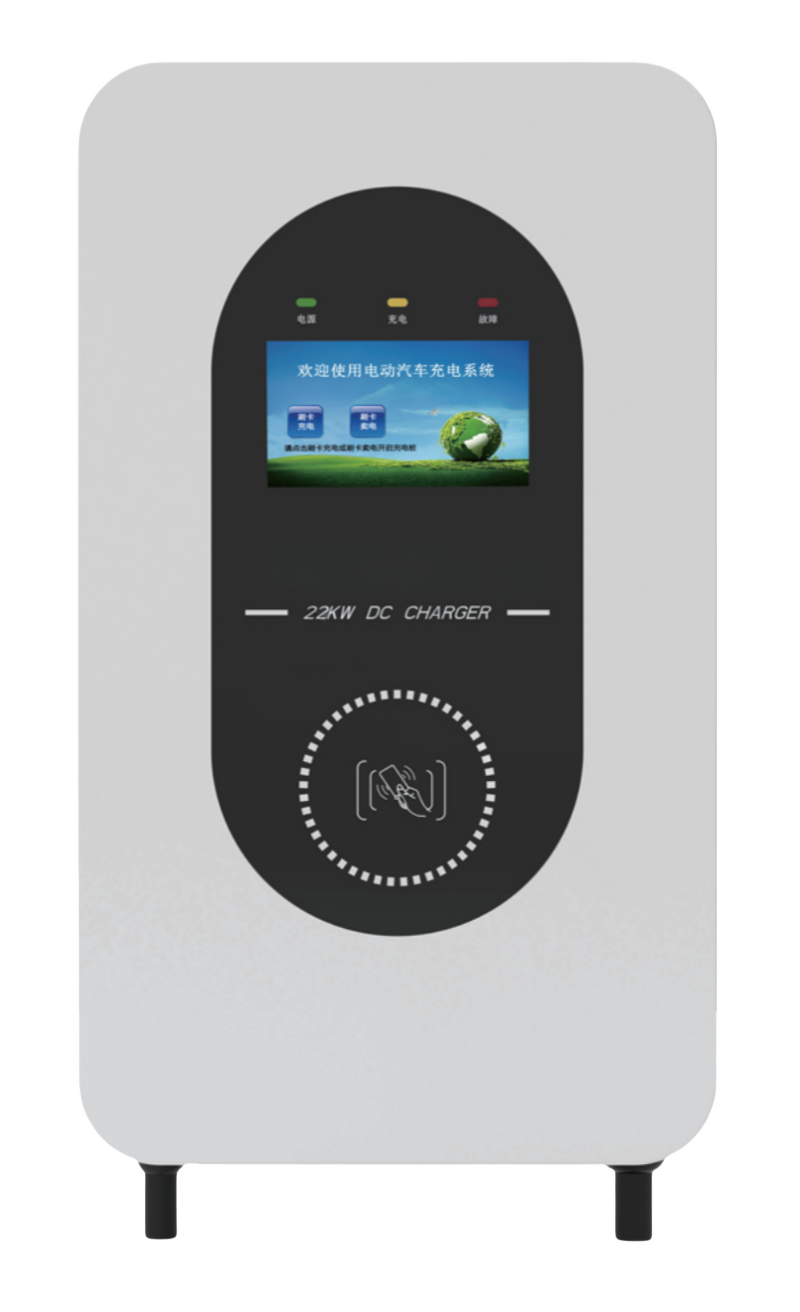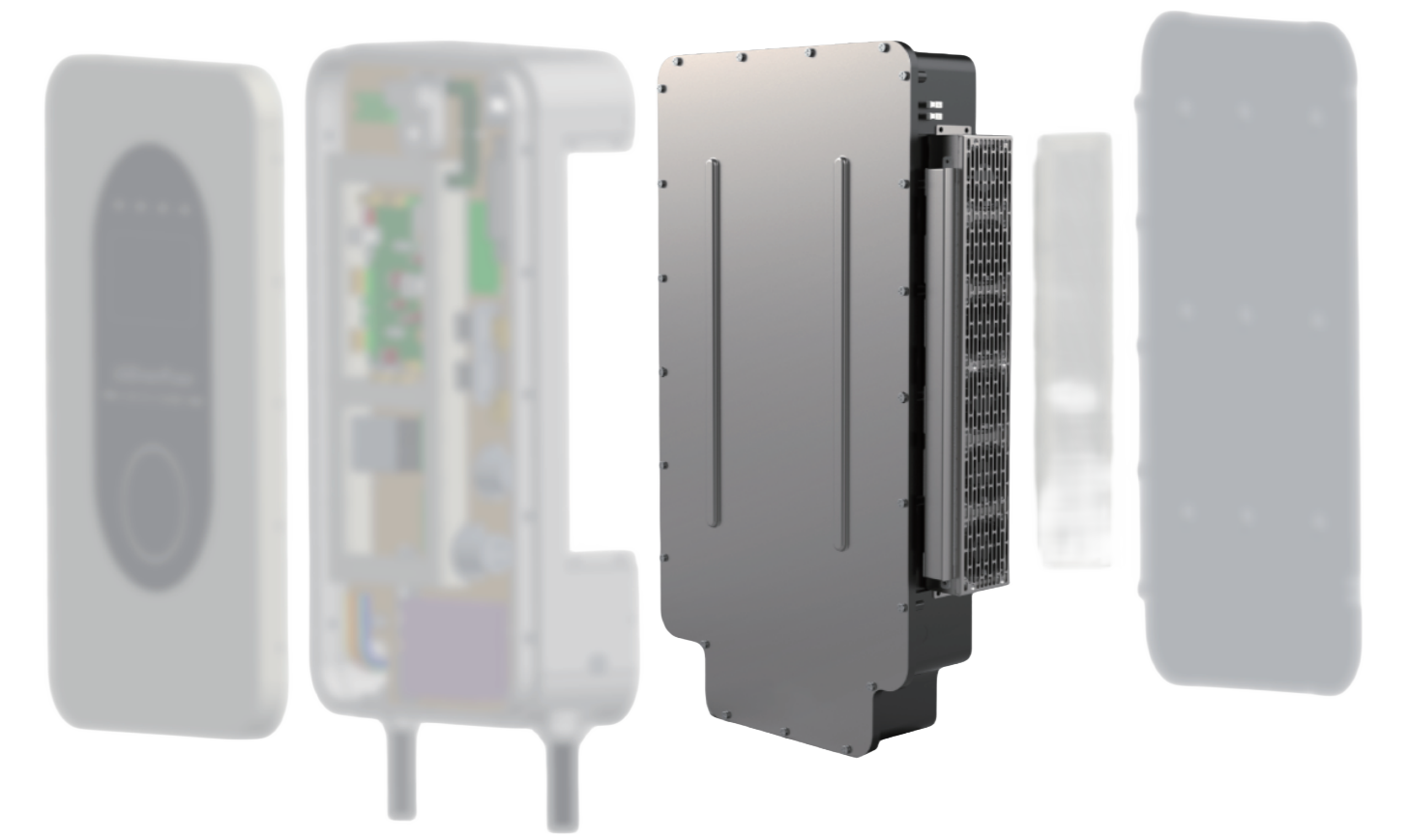DC V2G Charging
7KW 11KW 22KW Bidirectional DC Charger
Vehicle-to-grid (V2G) technology represents a state-of-the-art solution that enables the flow of energy from electric vehicle batteries back to the power grid. By leveraging V2G, EV batteries can be discharged in response to various triggers, such as local energy production or consumption.
Vehicle to Everything (V2X)
The concept of vehicle to everything (V2X) includes not only vehicle to grid (V2G), but also similar concepts such as vehicle to home (V2H), vehicle to building (V2B), and vehicle to load (V2L).

Bidirectionality
Participate in peak load regulation of the power grid; serve as a backup energy source for households.
Upgradeable
The EV charging PCS and power module’s modular design facilitates future expansion and upgrades.
Low Noise
The newly designed heat dissipation mold effectively reduces the noise to below 55db.

Widely Adapted
Outputting 150V to 1000V, this ensures compatibility with all currently available vehicle models.
Features of KIWI DC V2G Charger
The KIWI V2G charger enables seamless bidirectional energy flow with a robust IP65 protection level and an autonomous airduct. It offers a wide output voltage range of 150V to 1000V, making it compatible with most passenger EVs. This charger is commonly used for grid-to-passenger EV charging and discharging.
How V2G charger working?
V2G EV Charging
Blue means V2G EV charging. This process is no different from regular electric vehicle charging, using the power grid or renewable energy to charge the EV battery through a charger.
V2G EV Discharging
Green means V2G EV discharging. When the power grid at the V2G charger location experiences instability, it is possible to utilize the car battery to feed electricity back into the grid, thereby contributing to stabilizing and optimizing the local power grid. In case of installing only for personal household use (V2H), the stored electricity from the car can also serve as a backup energy source.

Vehicle-to-Grid (V2G)
Integrating V2G chargers in government, construction, and corporate projects can achieve three energy and transport goals: decarbonization, increased efficiency, and widespread electrification.
Vehicle-to-Home (V2H)
The system, designed for residential use, provides backup power like a home energy storage system. It’s particularly suitable for areas with frequent power disruptions.
